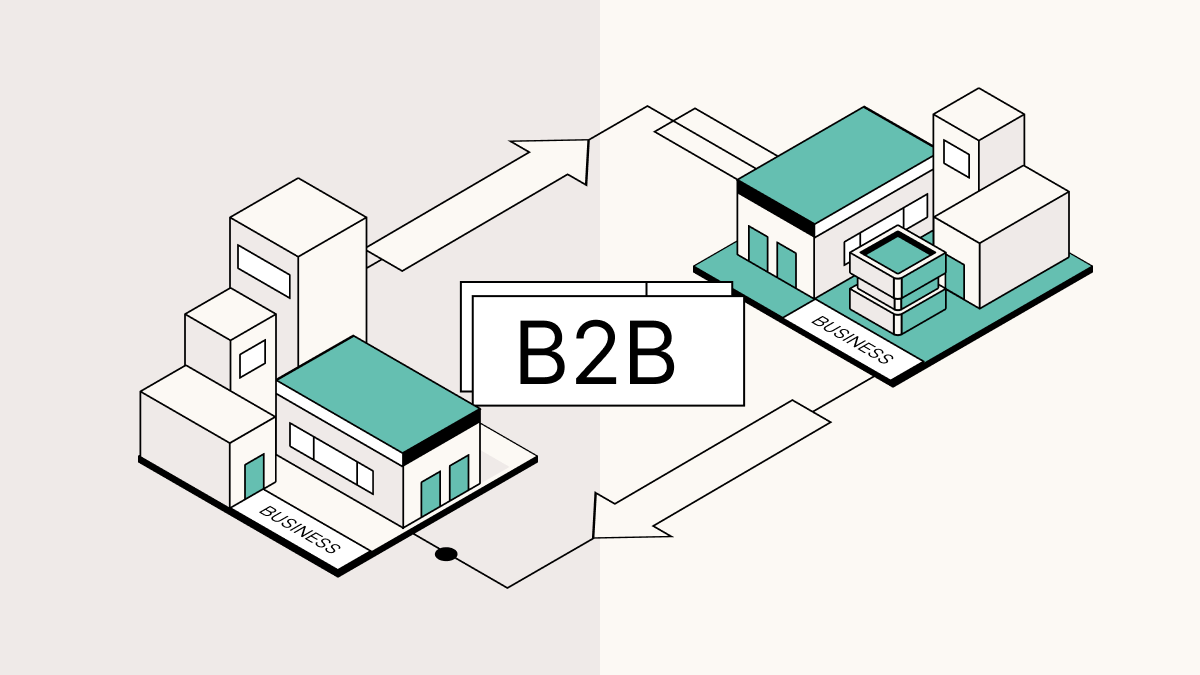What is a B2B company?
B2B, which stands for “business-to-business,” is one of several business models a startup can choose, depending on whether its target customers are individual consumers or other businesses. B2B can also be used to refer to a specific deal, such as a B2B transaction or B2B sale, or to describe the way a product or service is advertised (for example, “B2B marketing”).
Instead of selling products and services to individual consumers, B2B companies sell to other businesses. B2B is often contrasted with B2C, which is “business-to-consumer” and involves selling to individuals.
Tech companies that sell their software products to other businesses—known as B2B buyers or B2B customers—are considered B2B businesses. But the B2B market also includes wholesalers and other stakeholders in the supply chain.
Instagram is one example of a company that can be classified as either B2B or B2C, depending on the type of account a user creates. If it’s a personal account, it’s B2C, but if it’s a business account or you are an advertiser, it falls under B2B.
B2B vs. B2C
B2B companies target other businesses as their audience, while B2C companies target individuals.
|
B2B company |
B2C company | |
|
Target audience |
Businesses |
Individuals |
|
Example |
Salesforce: Provides customer relationship management software to businesses. |
Nike: Sells sporting goods and apparel to individuals. |
B2B e-commerce
B2B e-commerce refers to the process of buying and selling products or services online. It’s one of several popular business models for online companies, along with B2C, DTC (direct-to-consumer), and B2B2C (business-to-business-to-consumer).
B2B SaaS
SaaS stands for “software-as-a-service,” and is a type of business model where software is typically purchased as a subscription. B2B SaaS companies sell software subscriptions that are renewed on a recurring basis. A SaaS company’s software is cloud-based or app-based and is accessed via the internet—as opposed to software that is purchased as a one-time download to run on a specific machine.
B2B SaaS companies provide business-related software to other companies: Google and Microsoft provide email software through Gmail and Outlook; Zoom offers video conferencing and webinar software; and Carta provides cap table management software.
In other cases, this software may be sold to an individual via a B2C company, such as a personal email service or video chatting service. Netflix and Spotify are two examples of B2C SaaS companies that provide software for video and music streaming services.
Enterprise software
When a B2B SaaS company sells software that helps larger organizations improve their operations, reduce costs, manage data, and increase profits, it’s called enterprise software. Customer relationship management (CRM) software and human resources management software (HRMS) are some examples of enterprise software.
As an early-stage startup founder, choosing the right business model for your company is crucial. Understanding the distinction between B2B and other models and evaluating your target audience will help you make an informed decision.




